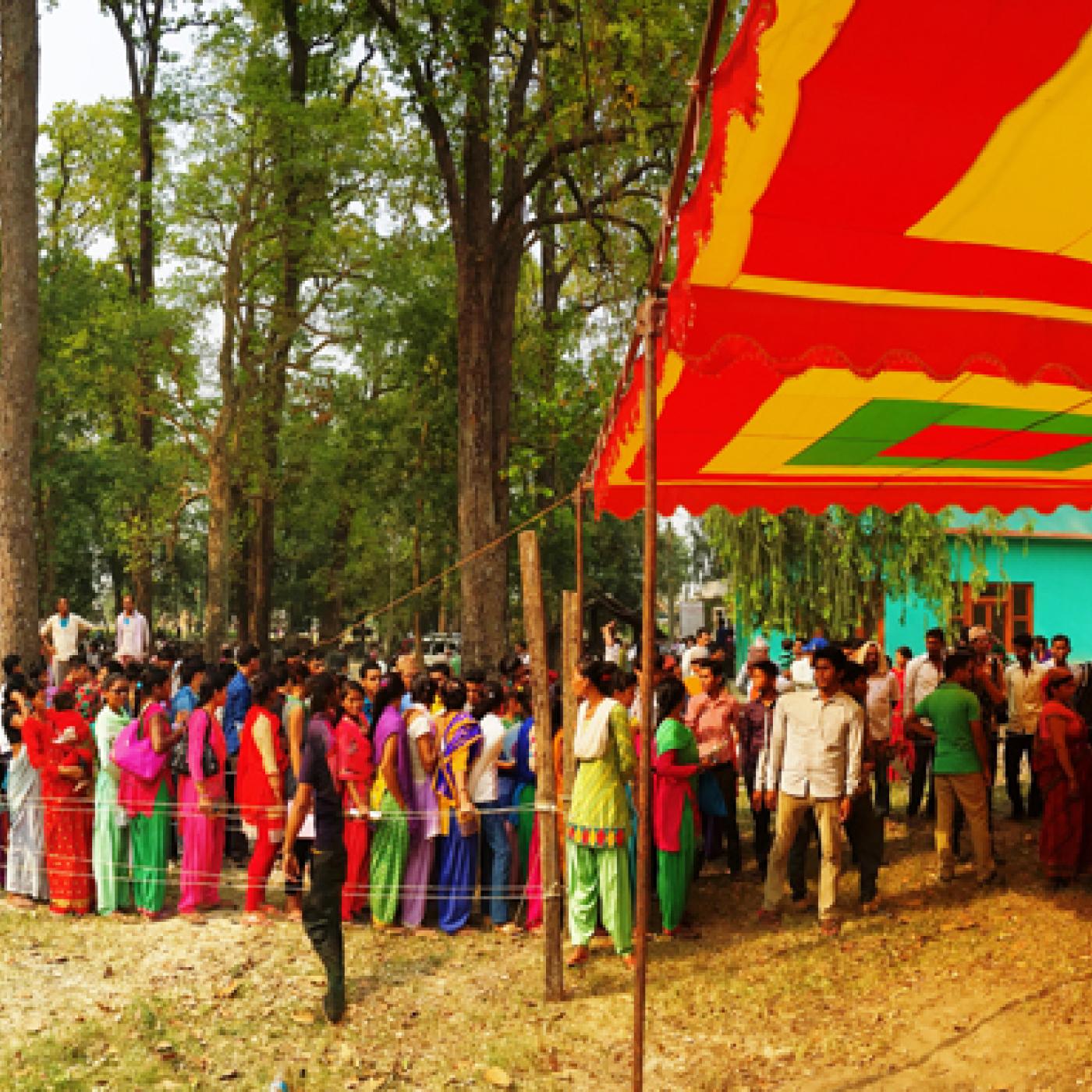Search
Filter by
Type
Publication date
Language
Type
Publication date
Language
News & Updates
Press Release
IFES Announces Winners of 2016 Photography Contest
Two compelling photographs depicting insightful moments of Election Day in India and voter registration in Nepal have won the top prizes of the International Foundation for Electoral Systems’ (IFES) 2016 Photography Contest. They were part of 10 photographs selected as finalists among the more than 100 images that were submitted to the democracy-themed competition.
News & Updates
Feature
Photo Gallery: IFES 2016 Photography Contest Winner and Finalists
An image of a person with a disability in India on his way to vote with the assistance of his son was selected as the Grand Prize winner in the International Foundation for Electoral Systems’ (IFES) 2016 Photography Contest. A photo of eager citizens in queue to obtain their citizenship cards and enroll on the Election Commission of Nepal's voter register at a mobile camp in Kailali district, Nepal was selected as the IFES Choice winner of the Photography Contest.
News & Updates
Feature
Parliamentary Elections in Slovakia: Pre-Election Promises and Post-Election Expectations
Publication
Brochure/Fact Sheet
Factsheet on Electoral Provisions in Nepal’s New Constitution
On September 20, 2015, Nepal’s Constituent Assembly approved a new constitution, transitioning Nepal to a Federal Democratic Republic divided into seven provinces. IFES has developed a factsheet to provide an overview of how the new constitution will affect Nepal’s electoral process, including explanations of the electoral systems to be used for different elected bodies and positions, provisions to ensure representation of women and other marginalized groups, and guidelines on the delimitation of electoral constituencies.
February 18, 2016
News & Updates
Feature
From Invasion to Islamic State: Iraq from 2003-2015 and IFES’ Support to the Iraqi Independent High Electoral Commission
Iraq has undergone dramatic change in the past decade. The U.S.-led war in Iraq that began in 2003, and the subsequent de-Ba’athification process led by the Coalition Provisional Authority, spike in sectarianism, advancement by the Islamic State (IS) and push by the Kurds for independence, all continue to impact the country’s political and security environment.
Publication
Survey
Opinions on the Electoral Process and Democracy in Iraq
Following the April 2014 Council of Representatives elections, IFES conducted a public opinion survey of voting-age citizens in Iraq.
May 15, 2015
News & Updates
Feature
Promoting Gender Inclusion with Nepal’s Election Commission
In the last decade, Nepal has made significant progress in promoting gender equality and women’s political participation, including adopting women’s rights-focused international and national instruments as well as a gender quota in the 2007 interim Constitution.
News & Updates
Feature
Voter Registration Improvement is a Priority for Iraqi Leadership
Having a reliable voter register is a key concern for election management bodies. An accurate voter register ensures voter access to, and the integrity of, the electoral process. Launched in October 2011, the International Foundation for Electoral Systems’ (IFES) Iraq Elections Support Project (ESP) provides technical assistance to the Independent High Electoral Commission (IHEC), the Iraqi election management body, in various areas including voter registration.
News & Updates
Feature
Registering Marginalized Populations to Vote in Nepal
As Nepal undergoes critical electoral and governance changes, IFES Nepal is working with local partners to register Nepalis – including Dalits, youth, Muslim women, freed Kamaiya (those subjected to forced labor) and other historically marginalized groups – to vote. This is part of IFES Nepal’s efforts to ensure that all Nepalis are able to participate actively in Nepal’s evolving political process.
News & Updates
Feature
Improving Access to Citizenship Certificates
As a primary legal document in Nepal, the citizenship certificate is compulsory for banking; accessing formal education and employment; registering on the voter’s roll; and obtaining a variety of benefits, including social security and government allowances for people with disabilities, victims of armed conflict and internally displaced persons. Yet despite its importance, there are significant barriers – including lack of knowledge or supporting documents and issues related to gender, caste and extreme poverty – that hinder access to citizenship certificates, especially for those from Nepal’s more marginalized groups.








